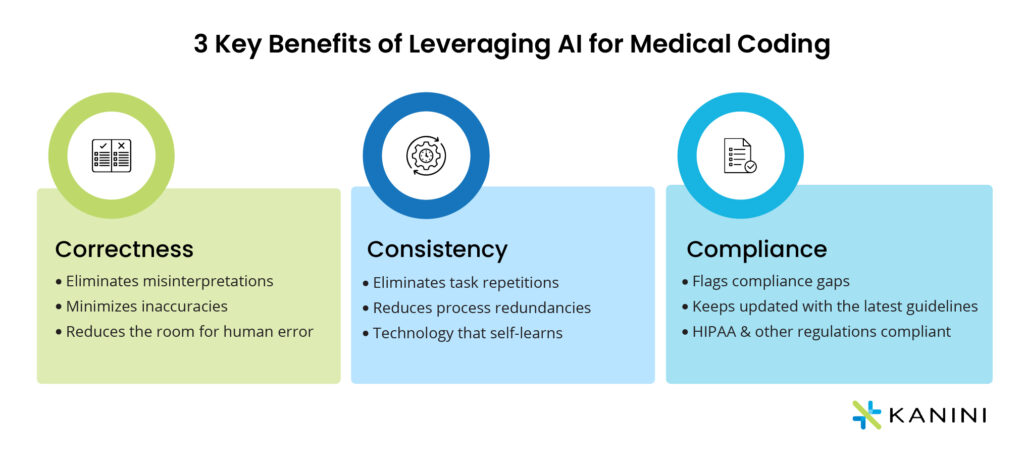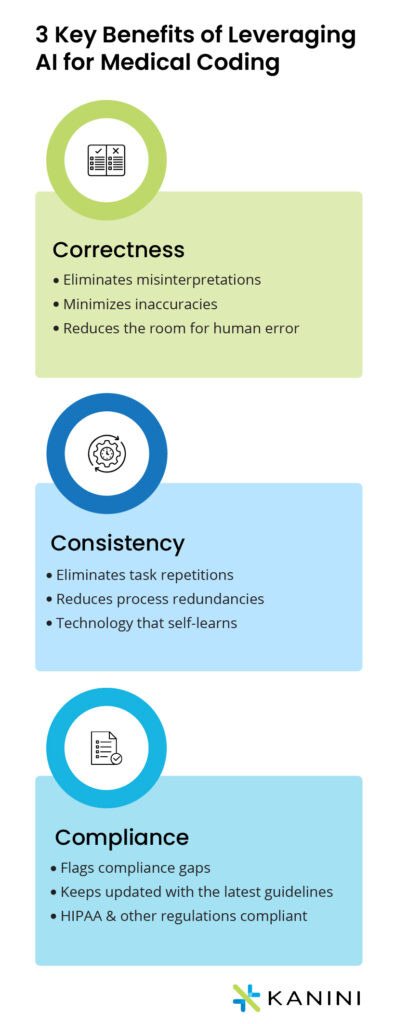The US medical coding market is experiencing phenomenal growth and is forecasted to expand at a compound annual growth rate (CAGR) of 8.0% from 2022 to 2030.
– Grand View Research
Bidding Adieu to Manual Processes
Quality Matters!
- Increased Claims Denials/ Delays
- Impacted Revenues
- HIPAA Violations
- Legal Lawsuits and Federal Fines
- Compromised Patient Satisfaction
- Increase in Medical Debt
- Coder Fatigue and more…
In 2021, around 90% of the denied claims could be avoided. This part of the claim denials would have translated to about $235 billion as annual revenue for the American medical industry, according to a report by Healthcare Financial Management Association (HFMA).
Decoding Medical Coding Challenges with Technology
AI Use Case: Intelligent Z Code Extraction and Contextual Mapping
- The platform identified the ICD/Z Codes automatically
- It also identified the key phrases in the EHR document against these ICD/Z Code descriptions
- Natural Language Processing (NLP) delivered contextual matches of the key phrases with the content
- The technology extracted portions/phrases from the EHR document that matched the key phrases along with the matching score. It supported multiple types of docs (.pdf,.doc, .TXT, and OUT).
- It created a top N recommended set of extracted phrases from the document that had the highest matching score
- And, displayed matching content with mapped ICD/Z Code in a UI
Looking for a solution to make your medical coding and billing process efficient?
Leveraging AI to Achieve the 3Cs of Medical Coding
● Correctness
● Consistency
● Compliance


Moving Forward with AI
At KANINI, we transform healthcare businesses through our digital engineering solutions and accelerators powered by AI/ML technologies. If you wish to know more about how we can help you solve your challenges in medical coding and other areas of healthcare, get in touch.
Author

Anand Subramaniam
Anand Subramaniam is the Chief Solutions Officer, leading Data Analytics & AI service line at KANINI. He is passionate about data science and has championed data analytics practice across start-ups to enterprises in various verticals. As a thought leader, start-up mentor, and data architect, Anand brings over two decades of techno-functional leadership in envisaging, planning, and building high-performance, state-of-the-art technology teams.








